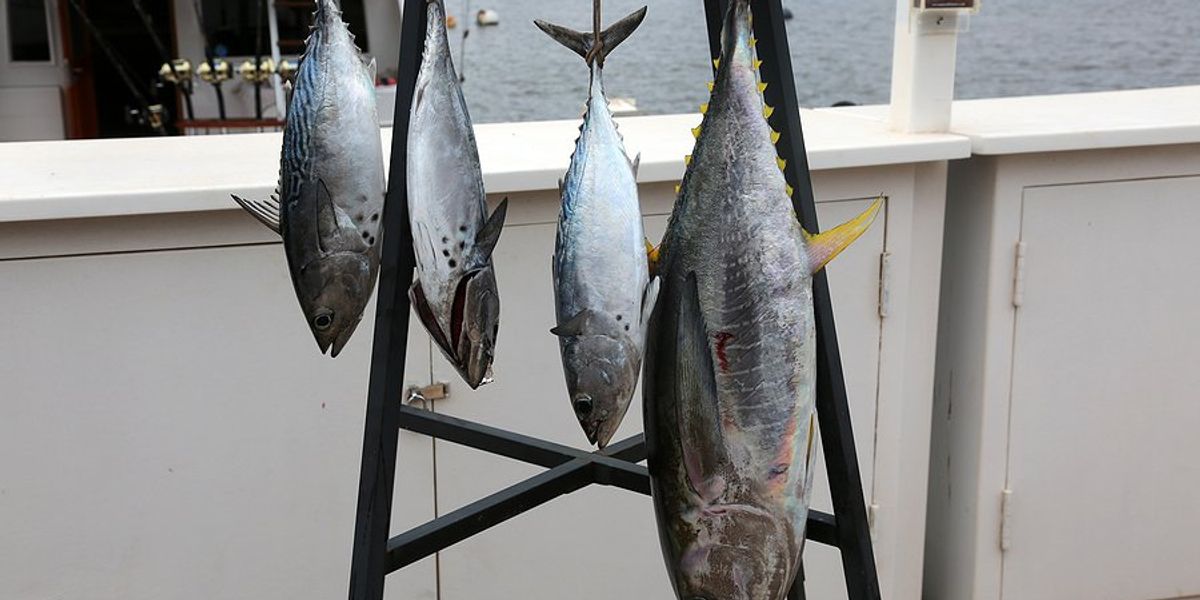
Pacific island nations face tuna crisis as warming ocean drives fish east
A warmer Pacific Ocean is pushing tuna eastward, threatening food security, government revenue, and livelihoods across small island nations dependent on the migrating fish.
Nathan Eagle reports for Honolulu Civil Beat.
In short:
- Tuna populations are shifting east due to warming waters, forcing Pacific island nations like the Solomon Islands, Kiribati, and Papua New Guinea to confront economic losses as access to these fish declines within their exclusive zones.
- Tuna is a major pillar of Pacific economies, supplying up to 71% of some nations’ government revenue and sustaining tens of thousands of jobs, particularly in local canneries like SolTuna in the Solomon Islands.
- A $107 million grant from the Green Climate Fund aims to help island nations adapt by funding scientific research to track fish migration and expanding nearshore fishing through devices that attract tuna closer to home.
Key quote:
“The best scientific advice available says that climate change is expected to reduce the tuna biomass in our waters to an extent that will remove a substantial share of the gains that we should be expecting from the sustainability of our fisheries.”
— Sangaa Clark, chief executive officer of the Parties to the Nauru Agreement
Why this matters:
As waters warm and tuna chase cooler currents eastward, Pacific small island states are losing out. Their exclusive economic zones are emptying out of fish, and high seas fishing — unregulated and often unprofitable for local communities — does little to replace what’s lost. The Pacific has long been praised for strong fisheries management, but climate-driven changes are outpacing policy. Meanwhile, foreign powers like China, Australia, and the U.S. are eyeing tuna as both a commodity and a geopolitical lever, financing infrastructure and canneries in hopes of influence. The result: an unstable mix of ecological displacement and international competition, in places already battered by rising seas and coral collapse.
Related: Trump reopens protected Pacific waters to commercial fishing, sparking backlash













